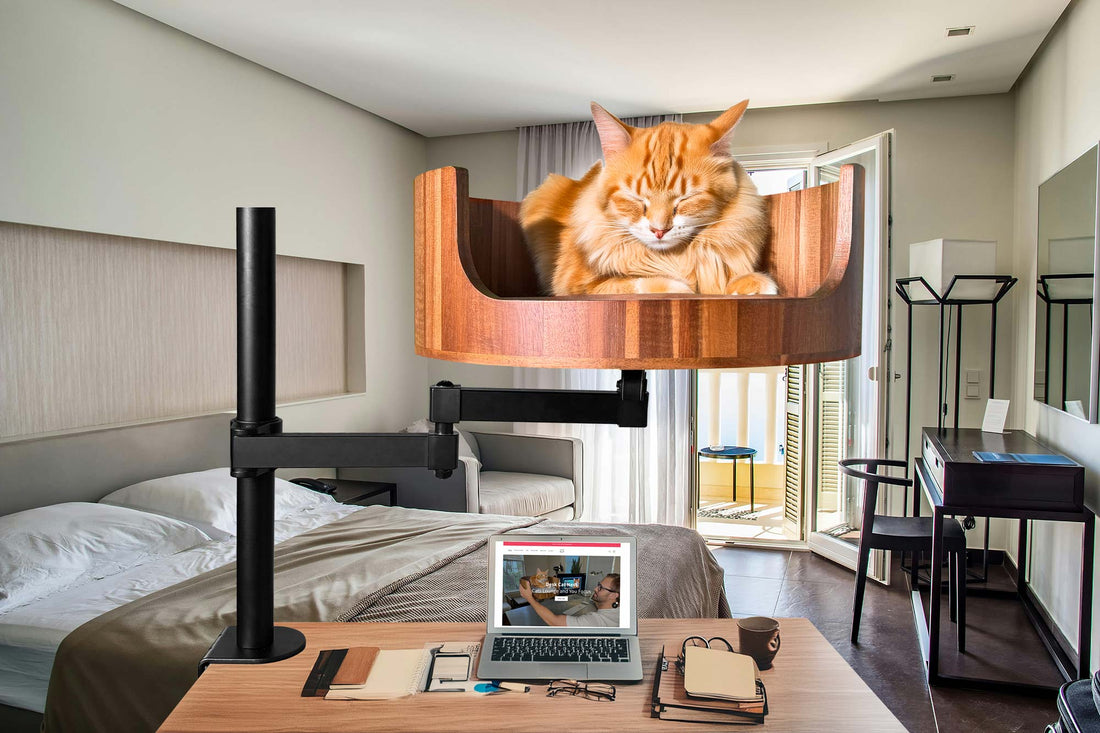
Why Does a Cat Eat Plastic? Understanding the Behavior
Share
Cat owners may have experienced the baffling behavior of their feline companions munching on plastic items around the house. From grocery bags to packaging materials, cats seem to have a strange affinity for chewing on plastic. This behavior can be not only confusing but also potentially dangerous for the cat as it can lead to choking or ingestion of harmful materials. Understanding why cats engage in this behavior is crucial for ensuring their health and well-being.
In this article, we will delve into the reasons why cats eat plastic and how to prevent this behavior. We will explore the potential underlying motivations behind this curious habit, such as pica, a condition that causes animals to crave non-food items. Additionally, we will discuss the risks associated with cats ingesting plastic, including gastrointestinal blockages and toxic reactions. By gaining insight into why cats are drawn to plastic and learning how to address this behavior, cat owners can better protect their beloved pets from harm.
1. Cats may eat plastic due to a condition called pica, which causes them to crave non-food items.
2. The texture and smell of plastic can be appealing to cats, leading them to chew and ingest it.
3. Ingesting plastic can pose serious health risks to cats, including blockages in their digestive system.
4. Providing plenty of stimulating toys and activities can help prevent cats from eating plastic out of boredom.
5. If a cat is consistently eating plastic, it is important to consult with a veterinarian to address any underlying health issues or behavioral concerns.
What is Pica in Cats?
Pica is a condition in which animals crave and consume non-food items, such as plastic, wool, or rubber. While the exact cause of pica in cats is unknown, there are several theories that suggest it may be due to dietary deficiencies, stress, boredom, or medical issues. It is essential for cat owners to understand this behavior in order to address it effectively.
Potential Dangers of Eating Plastic
Eating plastic can pose significant dangers to cats' health. When a cat ingests plastic, it can cause blockages in their digestive system, leading to symptoms such as vomiting, diarrhea, and abdominal pain. In severe cases, surgery may be required to remove the blockage. In addition, the chemicals found in plastic can be toxic to cats and may lead to long-term health issues.
Addressing the Behavior
If your cat is exhibiting pica behavior and eating plastic, it is crucial to take action to prevent any potential harm. Start by ensuring your cat has a well-balanced diet to rule out any nutritional deficiencies. Provide plenty of mental and physical stimulation to prevent boredom and stress, such as interactive toys and regular play sessions. Additionally, consider consulting with a veterinarian to rule out any underlying medical issues that may be causing the behavior.
Desk Cat Nest FAQ
Why does my cat eat plastic?
There could be several reasons why your cat is attracted to eating plastic. Some cats may have a condition called pica, which causes them to eat non-food items. This behavior could also be due to boredom, stress, or seeking attention. It's important to consult with your veterinarian to rule out any underlying health issues.
Is it harmful for my cat to eat plastic?
Eating plastic can be dangerous for cats as it can lead to gastrointestinal blockages, which may require surgery to remove. Ingesting plastic can also pose a choking hazard or cause other internal injuries. It's important to keep plastic items out of reach from your cat to prevent them from ingesting it.
How can I prevent my cat from eating plastic?
To prevent your cat from eating plastic, make sure to keep all plastic items such as bags, packaging material, and toys out of reach. You can also provide your cat with safe and appropriate chew toys to redirect their behavior. If the problem persists, consult with your veterinarian for further advice.
Will providing a Desk Cat Nest help prevent my cat from eating plastic?
While a Desk Cat Nest can provide a cozy and safe space for your cat to rest and play, it may not necessarily prevent them from eating plastic. It is still important to address the underlying reasons for why your cat is attracted to eating plastic and take steps to eliminate the behavior. Consult with your veterinarian for the best solutions for your individual cat's needs.
In conclusion, providing your cat with a Desk Cat Bed can greatly help address the issue of why a cat may be inclined to eat plastic. By offering a comfortable and safe space for your feline friend to lounge and relax, the Desk Cat Bed can help reduce stress and anxiety that may lead to unusual behaviors such as plastic ingestion. Furthermore, the elevated design of the Desk Cat Bed can also provide a sense of security and allow your cat to observe its surroundings from a safe vantage point. Overall, investing in a Desk Cat Bed is a valuable choice that can contribute to your cat's overall well-being and help prevent unwanted habits like eating plastic.



















































